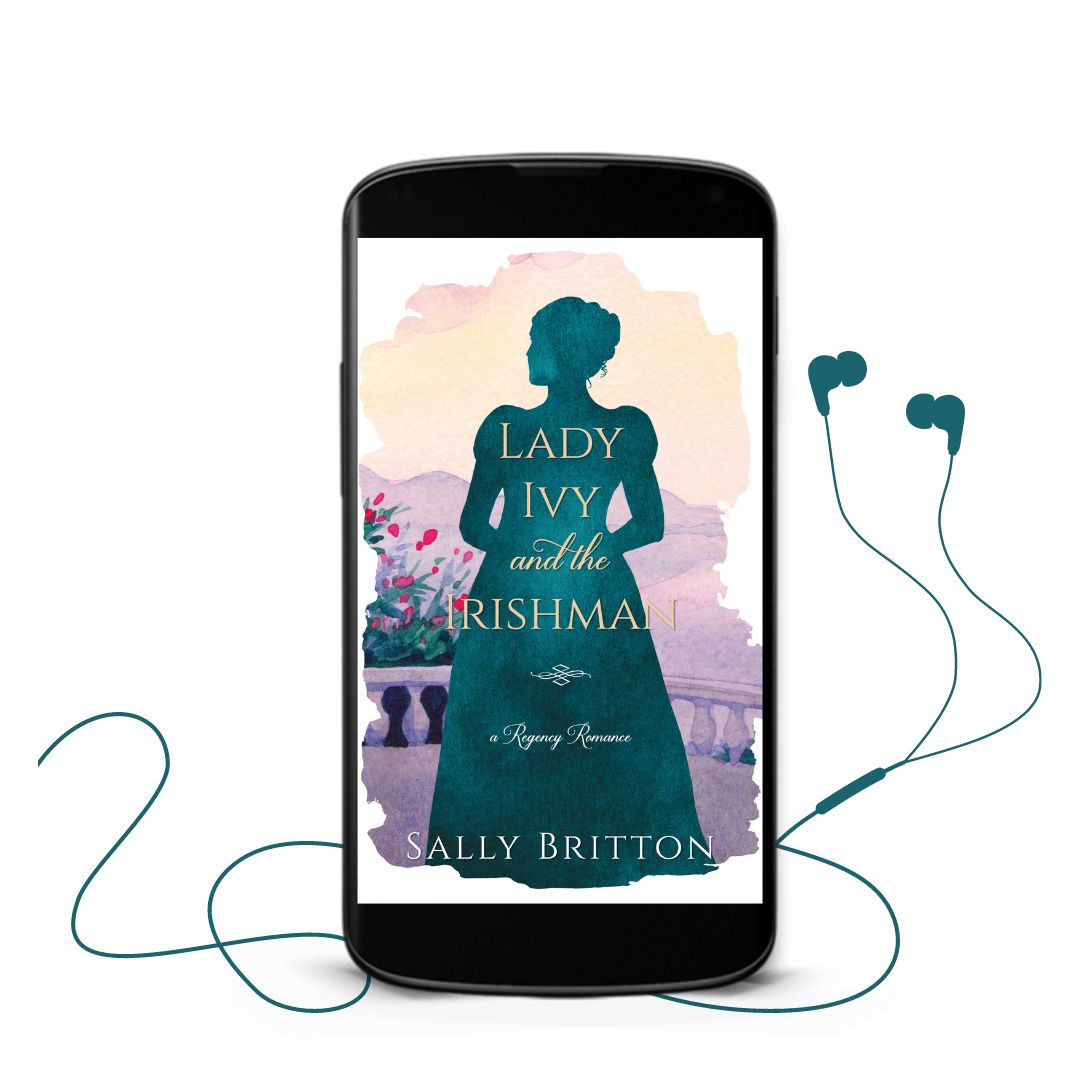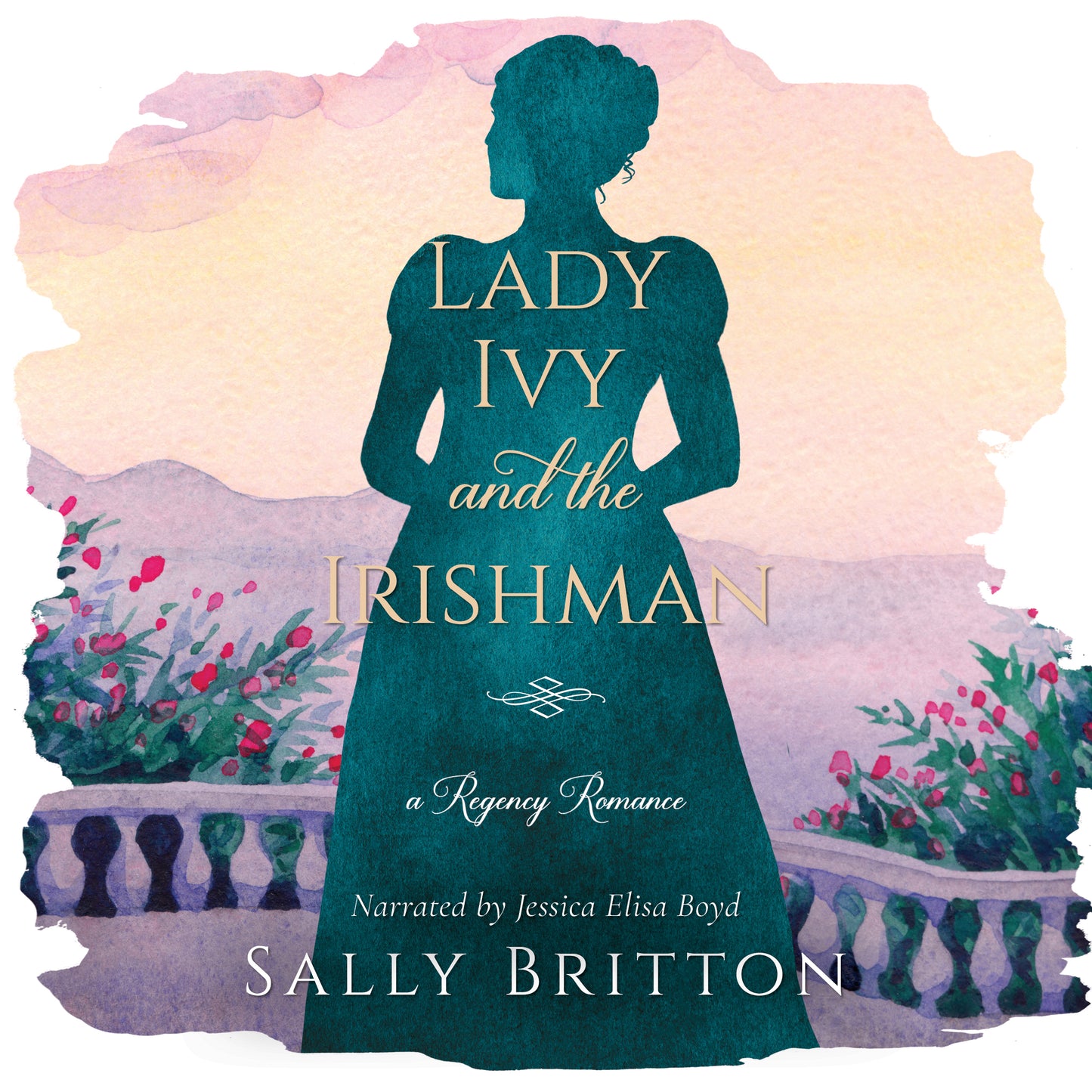Lady Ivy and the Irishman
Lady Ivy and the Irishman
Narrated by Jessica Elisa Boyd
Couldn't load pickup availability
- Purchase the Audiobook Instantly
- Receive Download Link via Email
- Stream on BookFunnel or Download MP3 Audiofiles and Enjoy!
Bound by her family’s expectations, Lady Ivy never thought freedom would come in the form of a charming Irish baron with a penchant for flirtation.
Lady Ivy Amberton struggles with the expectations of high society until she meets Lord Dunmore, a charming Irish baron who changes her world. Drawn to his spirited view of life, Ivy begins to rethink what it means to be herself.
Teague Frost, an outspoken Parliament member, is captivated by Ivy’s intelligence and grace. Her sincerity challenges his prejudices and sparks an unexpected affection. Together, they explore their deepening connection and discover new truths about themselves.
Set against the elegant backdrop of Regency England, Lady Ivy and the Irishman is a tale of self-discovery and unexpected love.
Main Tropes
- He Falls First
- Marriage of Convenience
- Irish Hero
Synopsis
Synopsis
Lady Ivy Amberton, weighed down by her family’s expectations, has often struggled to navigate the complexities of high society—until the arrival of Lord Dunmore, a dashing Irish baron whose open charm and spirited view of life turn her world upside down. As Ivy grapples with the unfamiliar thrill of attraction, she is compelled to reconsider her understanding of what it means to truly be herself.
Teague Frost, whose tenure in Parliament has cemented his views on the rigidity of the English, finds himself unexpectedly captivated by Ivy's intelligence and grace. Her sincerity challenges his prejudices and sparks an affection he had not anticipated. Together, they explore the surprising depths of their connection, each learning to appreciate new truths about themselves and the world.
As their relationship deepens, Ivy and Teague are confronted with the profound implications of their attraction. Can Ivy embrace her true desires and the possibility of a love that defies her family’s plans? Will Teague allow his unexpected love to transform him, fighting for a future that honors both his heritage and his heart?
Set against the elegant backdrop of Regency England, Lady Ivy and the Irishman is a tale of self-discovery and unexpected love.
Intro to Chapter One
Intro to Chapter One
“My friends say being an Irish baron isn’t as good as being an English baron.”
Teague Frost blinked down the breakfast table at Fiona, his eleven-year-old sister. She stared at him, her dark brown eyes inquisitive. “Did your friends say why?”
“They say your heir cannot sit in the House of Lords when you die.”
Given that Teague was not anywhere near expiring, nor did he have an heir or any way to obtain one as a bachelor, he stared incredulously at his younger sister. At ten o’clock in the morning, already exhausted and not looking forward to the day ahead of him, he was not in the best frame of mind to discuss the drawbacks of being an Irish member of Parliament.
“Your friends are right enough. All Irish lords in the House of Lords must be elected by the Irish peerage.”
“Why? All an English lord has to do is wait for his father to die, and then he gets to sit in Parliament.”
Teague wrapped his hand around his cup of coffee. “It is complicated, Fi.”
The child sighed and went back to her breakfast, humming softly to herself between bites of egg and sausage. Her humming during meals wasn’t the best of habits, but since it made her happy, Teague said nothing. Neither did her governess, when she was about.
His mother would have asked her to stop, had she been at table. Unfortunately, the baroness was in bed with a headache. His other sister was a married woman, completely gone from Teague’s household.
Which meant the only person to converse with was Fiona. And Fiona seemed of a mind to discuss politics.
“When will women get the vote, do you think?” she asked with a tilt to her head. “Before I am grown?”
“That is unlikely.”
“Why? Máthair says that even though women may not have a vote, we influence politics more than you men will ever know.”
His lips twitched. “Does she now?”
“She does.” Fiona adjusted her posture and pointed her fork at him. “I think I’m as smart as any boy my age. Why couldn’t I run for the House of Commons?”
He leaned back in his chair and regarded her with amusement. “It’s complicated.”
She huffed. “You already used that answer once.”
“I’m certain this is something your governess ought to school you in.”
“Do you know why or not?”
“I know why, but sitting at my breakfast table, when I’m hardly awake enough to enjoy a bite, isn’t the best time to be after explanations. Especially when I know none of them will satisfy someone as stubborn as you.”
Fiona considered his words a moment before she nodded. “Fair enough. But you will explain sometime, will you not?”
“I will. Sometime.” He looked at the clock hung over the door. He needed to leave to make his committee meetings on time, but his mind remained in a fog of exhaustion from staying out late the evening before.
Keeping awake to attend the evening events of London Society was necessary for a man in politics. Too many nights in a row made mornings difficult, on occasion, but he’d managed well enough.
He worried for his mother, though. The parties that kept on until the wee hours of the morning rarely agreed with her. Mixing in large crowds often made her anxious. Yet she kept at it, arguing politicians relied on the women in their lives to work behind the scenes.
He wished she wasn’t right on that account.
After a brief glance at his sister, ensuring she had turned her attention to the book she had brought to the table, Teague opened the paper beside his plate. He skimmed the lengthy report on the Queen’s legal justification, and its rejection, for attending the King’s coronation. He glowered at the long list of laws dredged up, at the numerous lists of consorts and wives of kings’ past and how they had or hadn’t been present when their mate and monarch received the crown.
“Ridiculous,” he muttered to himself, moving along to the next page. The government had gone mad, refusing to acknowledge the wife of their king as his consort. Politics aside, it gave all of Europe reason enough to laugh at the English.
He read through the announcements of plays in this or that royal theatre, his eyes lingering over a review for a particular performance. He had accepted an invitation to see a newer play, called A School for Scandal. It was purported to be a comedy, which he supposed he needed.
He’d attended a new tragedy written by a fellow Irishman, yet watching the melancholy story unfurl half a dozen times in the previous weeks had affected him. Perhaps he ought to have seen it once only, but Irish pride in a fellow Irishman succeeding, and in such a way as to gain the praise of so many English critics, had kept him going.
He had even eaten dinner with the playwright, John Banim, to discuss the themes of friendship and loyalty in Damon and Pythias. Two things Teague hadn’t much personal experience with if he was truthful with himself. A fictional farce had the potential to improve his mood.
A few inches over from the theatrical announcements were the lists of nobles departing London until Parliament gathered again in the new year.
His eyes caught on a familiar name. The Duke and Duchess of Montfort, along with all (principal) members of their family, quit London for their familial home in Leicestershire on Wednesday.
Teague’s mind filled with his memory of Clairvoir Castle, the country residence and family seat of the duke. The castle—with its gold-bricked edifice and elegant turrets, the ramparts made for promenading rather than defense, and the beauty of its gardens—had left an impression upon his mind he hoped to keep all his life. He’d spent a Christmas there, more than a year ago, when his sister and the duke’s heir had fallen in love with one another. He’d visited last spring for their wedding in the castle’s chapel.
He hadn’t returned since then, as his own affairs, estate, and politics kept him far too busy.
Still, he wondered if Lord and Lady Farleigh, his brother-in-law and sister, were part of the principal members of the family soon to make their way to the rolling hills and peaceful woods of Clairvoir Vale.
When was the last time he’d spoken with Isleen? Weeks ago, when the two of them had found each other invited to the same party. He saw his sister’s father-in-law more often than anything. At clubs, in political circles, in places where Teague felt weary rather than comfortable.
He closed the paper and tossed it onto an empty chair to his left, across the table from his sister’s seat.
“What has made you grumpy this time?” Fiona asked from her place.
“Nothing we haven’t already discussed,” he admitted, forcing himself to smile even though he felt exhaustion weighing on his mind and heart. He had been at work in the House of Lords from January to July, seeing and hearing more meaningless motions and bills than he could remember. Some motions had passed that were helpful, but others exacerbated problems for his people in Ireland and the common laborers across the Kingdom. Everywhere he turned, he found more bluster and nonsense than he had patience for. “It is always the same.”
“Then you should stop fretting about all of it, if there is nothing new,” Fiona said, buttering a slice of toast with a knowing grin. “We quit London next week.”
“That we do.” Teague passed his hand across his eyes. “On to our next adventure, I suppose.”
“Máthair said we’re visiting Isleen.”
“Did she now?” Teague raised his eyebrows. “I hadn’t heard this news. Do we have an official invitation?”
Fiona shrugged. “I know only what Máthair tells me.” She took a large bite out of her toast. “But if we are invited, we will visit, won’t we?”
“We will.” Teague couldn’t deny his mother time spent with her married daughter, nor the luxury and enjoyment of staying as a guest of the duke and duchess at their home. Even if he had his own estate and obligations to see to.
He rose from the table and ruffled his sister’s hair as he passed her chair. “I must be off. I won’t be back for dinner, and I am out late at the theater this evening.”
Wrinkling her nose, Fiona’s query verged on a whine. “When do I get to come with you? Must I really wait until I’m presented at court?”
“And not a day before.”
She grumbled something about the “unfair treatment of youth” before taking another large bite of her meal, and Teague left the room with an amused grin. Fiona couldn’t wait to grow older. Poor mite was in for a shock when she saw all that came with age and Society’s expectations.
At least he had the theater to look forward to that evening.






